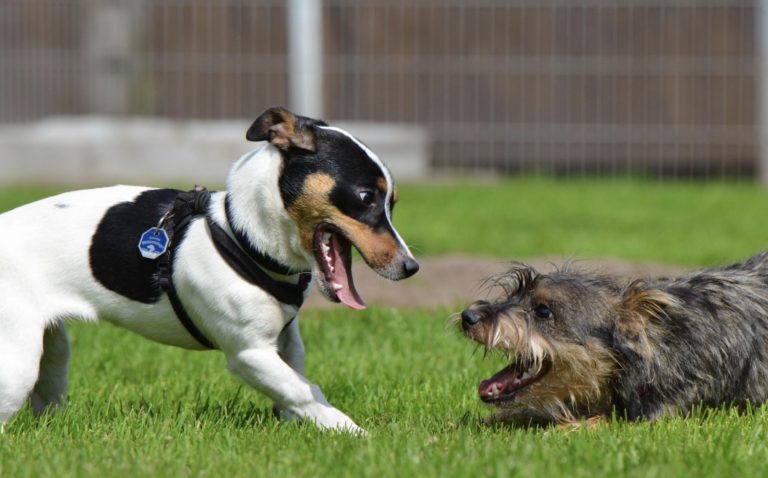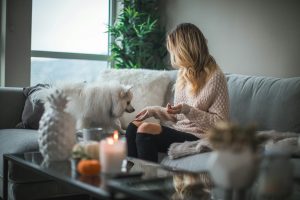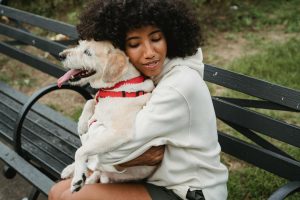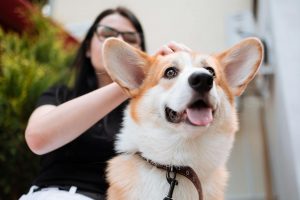When it comes to socializing your puppy, a lot of people think all you need is to let him play with other dogs when he is little and that is it. Wrong. Early puppy socialization is much more than just letting your dog play with other puppies.
Here is a sad fact: not enough proper socialization will set the stage for relinquishment and euthanasia. Yes, it is a sad story, but that is the fact. Well-socialized puppies are much more adapt to unexpected social situations they may be exposed to when they are older. Puppies who are not socialized, will not handle it quite nicely.
If you look at the motto of my blog, you will see it reads, “Nature gives you a puppy, but nurture, socialization, and training gives you a companion dog”“. Adequate socialization will turn a good puppy into a great dog.
Why do we socialize dogs?
I have written before about all the benefits of socializing your dog. Here is a quick summary of it.
For starters, socializing teaches your dog how to react to the world around in a healthy and happy way. Starting early can eliminate challenges later in life for both you and your puppy.
Fear and aggression are two things that you also eliminate with dog socialization. It is important to be slow and patient with your puppy. Even more, if you have a rescue dog. These dogs usually have deeper fears and learned reactions, so you have to be patient and socialize them again.
Socialization helps both you and your pup to enjoy a happy life together. Yes, it is possible to socialize older dogs as well.
What do people think puppy socialization is?
I said before that most people think proper socialization is all about meeting and playing with other dogs. Wrong. Does your dog live in a closed environment, an isolated area only with dogs? Of course not. You have to socialize your puppy much more than playing with other dogs. Here are some things most people think are early puppy socialization:
- Playing with other dogs
- Meeting people
- Going to the dog park
- Going to a dog-friendly patio
What puppy socialization actually is?
Now, while the four things most people associate with socialization are correct, it is a much deeper thing than that. I also do not recommend going to the dog park often. Why? Because not every dog loves to hang around other dogs, and your puppy might not be ready for it.
Now, here is a quick summary of what dog socialization actually is.
- Exposure to different sounds
- Exposure to different smells
- Exposure to novel sighs and objects
- Experiencing various floor materials
- Experiencing different types of handling and touches
- Visiting novel buildings
- Meeting dogs
- Meeting people
- Meeting adults
- Meeting children
- Maintaining focus around different animals
- Maintaining focus around unfamiliar people
How do you socialize your dog?
Now that we talked about the puppy socialization checklist, let’s talk how you can be responsible puppy owner.
There are a couple of things you can do to speed up the socialization process. And it is important that you start at an early age. Why? Because the earlier you start building habits and manners, the more time your puppy will have to establish them.
There is a saying in dog training that your dog needs as much time to change a behavior as much as it has practiced it. For example, if you have a dog that has been sitting on the couch for one year, you will need one year of setting boundaries and modifying that behavior so that your puppy doesn’t jump on the couch.’
Now, while the critical socialization period is between three months and six months, you can always create positive association and react to a behavior problem.
But the first step in puppy socialization is meeting different people. Why do we mean by that? We mean men, women, children, elder people, tall people, short people, obese people, people in a wheelchair, and everything else. Reinforce positive experience and good behavior around a new person and you will have a dog that will never bite, growl, or bark at people.
Then, you move into socialization with other dogs. But this doesn’t mean letting your dog into the dog park and watching from afar. It means working with your puppy and reinforcing good behavior every time your dog sniffs another pup.
In the meantime, you build confidence by exposing your puppy to different buildings. Large stones, stairs, anything you can think of. Different sounds, smells, and everything in between. Create positive association with any new experience your dog has.
And of course, it is always a good idea to go to a puppy class. There, your pup will meet unknown dogs and they will work together in a safe environment.







